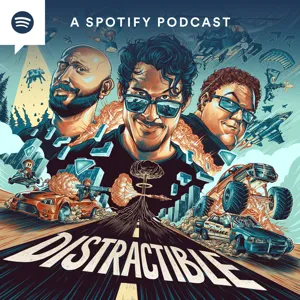Podcast Summary
Affordable wireless services and employee burnout during inflation: Mint Mobile offers cheaper wireless plans, while the pandemic causes 'quiet quitting' in the workforce, affecting various age groups.
Mint Mobile is offering a discounted price of $15 a month for new customers, making wireless services more affordable during inflation. Meanwhile, The Economist discusses how the pandemic's aftermath has led to a trend of "quiet quitting" in the workforce, with Gen Z not being the only group feeling burnt out. In international news, the fighting in Gaza between Israel and Hamas continues, with intense bombing and communication blackouts, suggesting another round of strikes could be imminent. Journalists were recently allowed into Gaza for the first time since the conflict began, revealing extensive damage in the northern part of the strip, with most buildings still standing but badly damaged in the city itself. The Israeli Defense Forces have been making their way into Gaza, primarily encountering resistance from Hamas members. The situation shows no signs of slowing down.
Effectively cut off: Gaza City under siege: Gaza City is under siege, cut off from the rest of Gaza Strip, with civilians facing intensifying fighting and uncertain ways out, while humanitarian situation worsens
The situation in Gaza remains volatile and dangerous for civilians, with Hamas continuing to launch attacks against Israeli forces despite the Israeli military's efforts to isolate Gaza City. The city is now effectively cut off from the rest of the Gaza Strip, leaving those remaining in a war zone with intensifying fighting. The Israeli army claims there are ways out, but the situation is uncertain, and there have been reports of both Israeli and Hamas forces preventing civilians from leaving. The mood among the Israeli troops involved is more serious than in previous operations, reflecting the ongoing nature of the conflict and the risks involved. The humanitarian situation for civilians is also a concern, with many having fled and those remaining facing limited access to supplies and services.
Israeli forces prepare for ground offensive in Gaza City: Israeli forces begin ground offensive in Gaza City, increasing risk of civilian casualties; ceasefire or humanitarian pauses unlikely; internet and phone networks blocked; air strikes reported; next phase involves moving into city center
The ongoing conflict between Israel and Hamas in Gaza is a serious matter for many Israelis, with some carrying personal experiences of loss. The IDF's preparation to enter Gaza City involves entering densely populated areas, increasing the risk of civilian casualties. The prospects of a ceasefire or humanitarian pauses are limited, and the battlefield is unlikely to be significantly affected. The ground offensive has already begun, with internet and phone networks blocked and massive air strikes reported. The next phase of the operation will likely involve Israeli forces moving into Gaza city center. Meanwhile, The Economist Podcast Plus offers insightful discussions on various topics, including the challenges of IVF.
COVID-19 led to shift in spending from services to goods: The pandemic caused a decrease in spending on services and an increase in spending on goods, with some services spending yet to recover.
That the COVID-19 pandemic led to a significant shift in consumer spending patterns, with a decrease in spending on services and an increase in spending on goods. This trend emerged during the lockdown periods when people were unable to consume many of the services they were accustomed to, such as international travel, dining out, and haircuts. As a result, there was a surge in demand for physical goods, including exercise equipment, computers, webcams, and food and wine for home consumption. Although spending on services has increased since then, it has not fully recovered to pre-pandemic levels in most countries. This suggests that there is less spending on leisure activities outside the home and a greater emphasis on purchasing goods.
Services spending recovery varies globally: Services spending remains below pre-COVID levels in countries with prolonged lockdowns and high infection fears, due to a lack of supply and lower demand caused by macroeconomic factors and individual behaviors.
While consumer spending on certain goods like chairs, fridges, clothes, and cars has remained relatively high compared to pre-pandemic norms, the recovery of services spending varies greatly between countries. In countries with shorter lockdowns, like New Zealand and South Korea, services spending has bounced back. However, in countries with longer and more painful battles against COVID-19, like the Czech Republic and America, services spending remains significantly below pre-COVID trends. This isn't due to high demand but rather a lack of supply, caused by lower employment in the sector and a deficit of establishments. Additionally, people may still be avoiding services where they're in close proximity to others due to infection fears, and working from home has endured in many countries, leading to less demand for personal grooming services. Overall, the recovery of services spending is more complex than the anecdotal evidence suggests, with macroeconomic factors and individual behaviors playing a role.
Consumer behavior shifts during pandemic, work-life balance becomes priority: The pandemic caused a change in consumer spending habits towards home-based activities and a new trend of 'quiet quitting' emerged, prioritizing work-life balance over long hours and excessive work commitment.
The pandemic has led to a shift in consumer behavior, with people spending less on services outside the home and more on solitary pursuits. This trend, while potentially lasting, is still uncertain as the world adjusts to a new normal. Another notable change is the rise of "quiet quitting," where employees are no longer committed to working long hours and going above and beyond, instead focusing on work-life balance. This trend, which gained popularity through social media, challenges traditional work culture and may have lasting implications for the workforce.
Significant number of workers across all age groups and genders are quietly disengaged: 20% engaged, 15% actively disengaged, and 75% quietly disengaged in workforce globally, regardless of age or gender
The phenomenon of quiet quitting, where employees put in the minimum effort at work without voicing their dissatisfaction, is not exclusive to Generation Z. According to a Gallup survey in 143 countries, a significant number of workers across all age groups and genders fall into this category. The survey found that only 20% of workers were engaged and enthusiastic about their work, while 15% were actively disengaged and 75% were quietly disengaged. The survey also revealed that there is a considerable variation in workplace engagement levels between countries, with America and India having the highest percentage of engaged workers and Italy and Japan having the lowest. However, there was little correlation between age and engagement levels, suggesting that the cliche of Gen Z being particularly unhappy at work is not supported by the data. Overall, the survey highlights the importance of addressing workplace engagement and satisfaction as a global issue, rather than a generational one.
Untapped Potential in the Global Workforce: Europeans are productive by the hour despite lower engagement levels, and recognizing and leveraging individual strengths can lead to increased productivity and engagement.
While there is a slight difference in engagement levels between women (21%) and men (19%), the survey data suggests that there is a significant amount of untapped potential in the global workforce. Many people who report being disengaged could potentially be more productive if given the opportunity. However, the survey also reveals that Europeans, who are less eager to go above and beyond, are still productive by the hour. This raises the question that perhaps we should focus on productivity rather than engagement levels alone. Sonja's insights from the episode also vindicate Gen Z, and serve as a reminder that everyone has the potential to contribute in meaningful ways to their organizations. Overall, the discussion highlights the importance of recognizing and leveraging the unique strengths and perspectives of individuals in the workforce.






